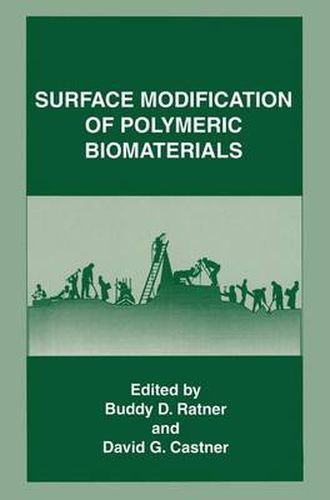Readings Newsletter
Become a Readings Member to make your shopping experience even easier.
Sign in or sign up for free!
You’re not far away from qualifying for FREE standard shipping within Australia
You’ve qualified for FREE standard shipping within Australia
The cart is loading…






This title is printed to order. This book may have been self-published. If so, we cannot guarantee the quality of the content. In the main most books will have gone through the editing process however some may not. We therefore suggest that you be aware of this before ordering this book. If in doubt check either the author or publisher’s details as we are unable to accept any returns unless they are faulty. Please contact us if you have any questions.
Applications of synthetic materials in medicine date back over 4000 year2. The Egyptians used linen as sutures. In the Roman Empire, gold was used in dentistry. Perhaps even earlier, ivory and bone may have been used in the body by practitioners of the healing arts. The historical origins of modem biomaterials science are also hard to precisely trace, but many of the ideas that define biomaterials as we know them today evolved in the late 1950s and early 1960s. Surface modification technology has played a prominent role in biomaterials science, and has paralleled the evolution of the modem field. In a symposium organized by the Artifical Heart Program of the NIH National Heart Institute and the Artificial Kidney program of the NIH National Institute of Arthritis and Metabolic Diseases, held in Atlantic City, New Jersey, in 1968, there were already a number of presentations on surface modification. Surface characterization at that time included scanning electron microscopy, ellipsometry, contact angle methods, and infrared internal reflection methods.
$9.00 standard shipping within Australia
FREE standard shipping within Australia for orders over $100.00
Express & International shipping calculated at checkout
This title is printed to order. This book may have been self-published. If so, we cannot guarantee the quality of the content. In the main most books will have gone through the editing process however some may not. We therefore suggest that you be aware of this before ordering this book. If in doubt check either the author or publisher’s details as we are unable to accept any returns unless they are faulty. Please contact us if you have any questions.
Applications of synthetic materials in medicine date back over 4000 year2. The Egyptians used linen as sutures. In the Roman Empire, gold was used in dentistry. Perhaps even earlier, ivory and bone may have been used in the body by practitioners of the healing arts. The historical origins of modem biomaterials science are also hard to precisely trace, but many of the ideas that define biomaterials as we know them today evolved in the late 1950s and early 1960s. Surface modification technology has played a prominent role in biomaterials science, and has paralleled the evolution of the modem field. In a symposium organized by the Artifical Heart Program of the NIH National Heart Institute and the Artificial Kidney program of the NIH National Institute of Arthritis and Metabolic Diseases, held in Atlantic City, New Jersey, in 1968, there were already a number of presentations on surface modification. Surface characterization at that time included scanning electron microscopy, ellipsometry, contact angle methods, and infrared internal reflection methods.